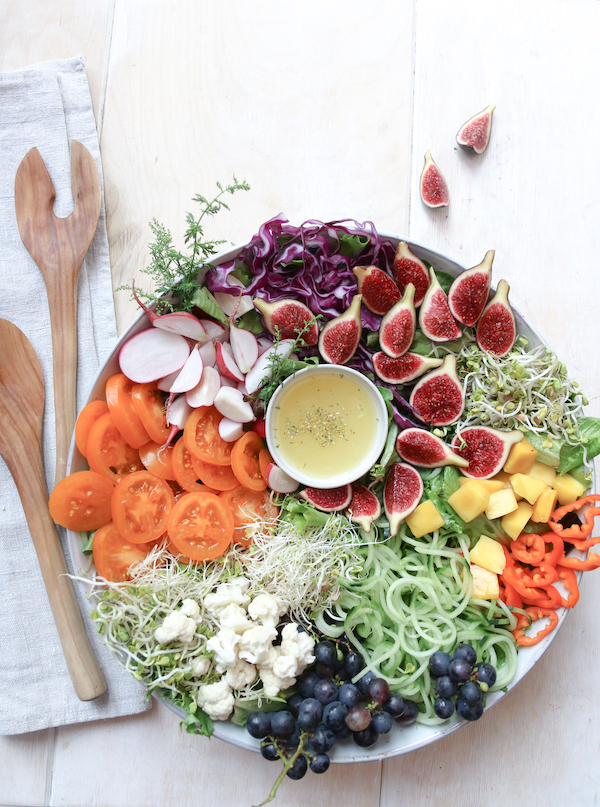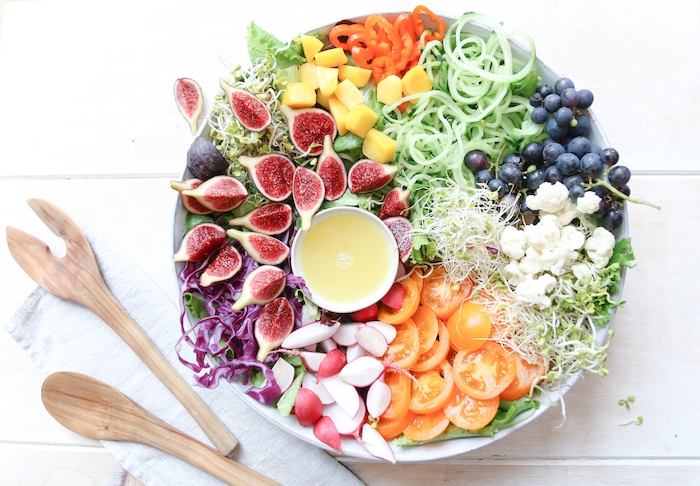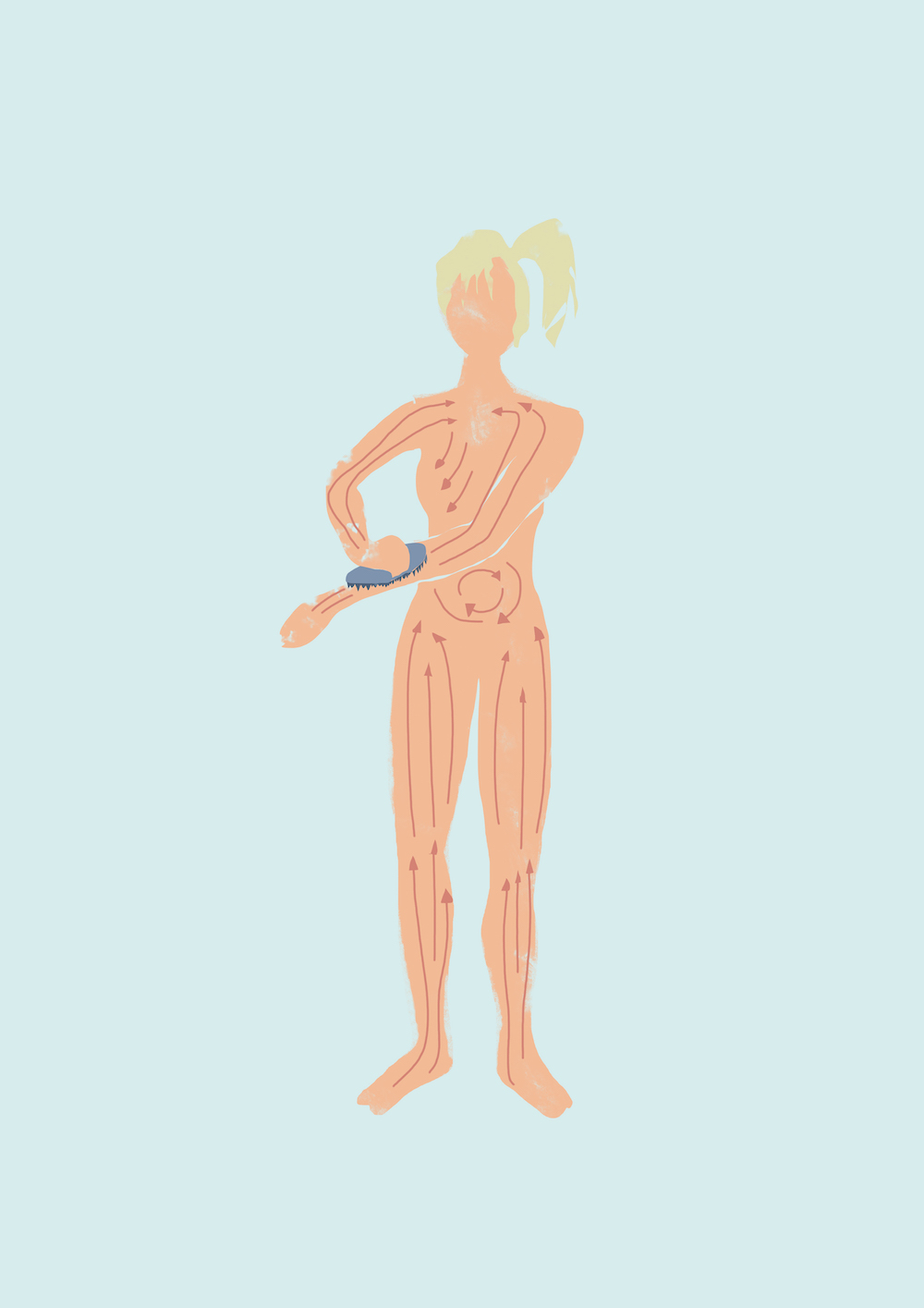For many people, fall is the season of runny noses, alternating between coughs, headaches and body aches. Those affected feel weak, tired, unable to perform, spend their time in the doctor’s office and leave plenty of money at the pharmacy.
But that doesn’t have to be the case! If you know effective strategies for preventing colds, you can strengthen your immune system and prepare for the cold season.
The Basis for Health
Our health is directly related to our immune system and our immune system depends on a good supply of nutrients and requires the support of the lymphatic system.
👉 The be-all and end-all are healthy cells and a pure cell environment
Our bodies consist of around 80 billion cells. Both nutrients and oxygen are delivered to the cells via the blood. Metabolic waste products are in turn transported away via the blood and lymphatic system.
This transport and detoxification task of the lymphatic system is essential for removing metabolic waste products and toxins and maintaining a clean cellular environment.
👉 It’s important that cell supply and disposal function optimally
If there are too many waste products stored in the cell environment, oxygen and nutrients are prevented from reaching the cells.
The result is an increasing backlog in the connective tissue and a lack of supply to the cells, which leads to a lack of energy and further fatigue, poor performance and susceptibility to infections.
👉 Strictly speaking, a cold is the body’s attempt to eliminate metabolic waste products and toxins through the formation of mucus
As early as the 19th century, the French scientist, microbiologist and doctor, Dr. Antoine Béchamp (1816 – 1908), summarized his research results and findings in the following statement:
“The pathogen is nothing, the environment is everything.” (Le microbe n’est rien, le terrain c’est tout.)
This means that the danger does not come from a virus itself, but from the environment in our bodies. If we can avoid hyperacidification and deposits and ensure an alkaline environment with well-functioning cell metabolism including a pure cell environment, we can consciously choose between health and illness!
Effective Strategies to Prevent Colds
Here we describe effective strategies for preventing colds, with the aim of optimal nutrient supply, relieving the burden on our excretory organs and strengthening the immune system.
1. Hydrate your body
Instead of starting the day with breakfast straight away, it makes sense to drink a glass of water first.
Our bodies consist of around 70% water. There’s actually nothing that happens in our bodies without water. Our brains even consist of up to 90% water.
Over the course of the night we lose up to 1.5 liters of water through our breath and skin.
Replenishing this fluid loss has many advantages:
-
All cells in our bodies need water for metabolism. A glass of water in the morning stimulates metabolism, digestion and kidney function.
-
Water is a solvent and transport medium and is therefore fundamental for blood and lymph.
-
Our bodies are in the elimination phase in the morning and can remove pollutants and used cells after regeneration at night.
You can alternate between plain water, lemon or ginger water throughout the year.

Plain water
It makes sense to use water that’s room temperature or body temperature. This means your body doesn’t have to heat the water in your stomach first before digestion.
In Ayurvedic teachings, it’s recommended to drink hot or even boiled water. The heat supports the digestive fire, whereas ice-cold water extinguishes the digestive power.
Lemon water
Lemon water increases the stimulating effect of water, has an alkaline effect, contains, among other things, vitamin C and valuable antioxidants and supports the liver in detoxification.
Ginger water
Ginger water warms you from the inside.
There are different ways to prepare ginger water:
- Pour boiling water over a few slices of ginger.
- Pour boiling water over grated ginger.
- Grate about 2 cm of ginger into 1 liter of boiling water and boil for 10 minutes.
Ginger water has a metabolism and digestive stimulating effect. It’s detoxifying, antibiotic and immune-stimulating.
2. Activate your lymphatic system
A key aspect of our immune systems is the lymphatic system. The lymph and lymphatic organs take on essential transport and detoxification tasks in the metabolic process.
Daily Movement
In contrast to blood, which pulses through the heart, the lymphatic system has no internal driver. Exercise is therefore essential to maintain the lymphatic flow, to remove metabolic end products and thereby support the immune system.
Daily exercise in fresh air is ideal. Jumping on a trampoline also has a wonderfully activating effect on the lymphatic system.
Dry Brushing
The immune system can receive further support through regular dry brushing. Brushing the skin has a stimulating effect on blood circulation and lymph flow and also stimulates immune defense cells in the skin. Metabolic breakdown products released by the massage are transported away via the lymphatic fluid.
It’s ideal to brush your skin before showering. A simple rule of thumb is to always stroke towards the heart and start with the parts of the body that are furthest away from the heart.
3. Get plenty of nutrients
A good diet can significantly reduce our susceptibility to infections and the duration and severity of a cold.
It’s important that we eat a nutrient-rich diet and avoid foods that put a strain on our cell metabolism and thus the immune system.

Foods that are rich in vitamin C and zinc are considered to be particularly immune-boosting.
Vitamin C
The water-soluble vitamin is particularly helpful in its function as an antioxidant. It protects our defense cells from oxidative stress and promotes the formation of leukocytes, which have important functions in the defense against pathogens.
The foods richest in vitamin C include rose hips, sea buckthorn berries, hibiscus flowers, nettle, parsley, black currants and bell peppers.
Zinc
The trace element zinc is a component or co-factor of over 200 enzymes and is involved, among other things, in the formation and activation of immune cells.
Wild herbs, poppy seeds, sesame, pumpkin seeds,buckwheat and legumes are rich in zinc.
Are you interested in gaining a comprehensive understanding of the health benefits of a plant-based diet? Download the curriculum for our Holistic Nutrition Coach training program.
The following food groups are alkaline-forming, extremely nutrient-rich and offer the best possible support for optimal cell metabolism and an active immune system.
Five immune-boosting food groups
👉 Fresh fruits and vegetables – rich in vitamins and minerals
👉 Berries – rich in antioxidants
👉 Green foods – rich in chlorophyll and biophotons
👉 Sprouts – rich in enzymes
👉 Colorful foods – rich in phytonutrients
While fresh fruits and vegetables, along with sprouts, provide us with many enzymes, vitamins, minerals and phytochemicals and thus strengthen our immune system, in general, milk and gluten-containing products do not serve the goal of being sickness-free.
Avoid dairy products and gluten
Dairy products cause problems in several ways:
- Intolerance to the milk protein casein
- Lactose intolerance
- Mucus-forming effect of cow’s milk
- Acid-forming effect of milk
All of these properties complicate the cleansing and detoxification processes of the immune and lymphatic systems.
Products containing gluten:
Decades of breeding have given grains, especially wheat, an ever-increasing gluten content. While 50 years ago they only consisted of 5% gluten, today it’s up to 50%.
Ten times as much – would you have thought that?
80% of the immune system is located in the intestines
Our health depends on a healthy intestine. Gluten causes the sensitive intestinal mucosa to stick together and impairs the immune system and nutrient absorption in the small intestine.
The topic of nutrition is a big challenge for many and usually means letting go of long-held habits. We recommend not concentrating on giving everything up all at once, but instead focusing on new recipe ideas and taking the first step into a “new world of food.”
4. Allow yourself periods of rest
Relaxation is an important factor in preventing colds. It’s now scientifically proven that our psychological states have an impact on our immune systems (1). Chronic stress and negative feelings lead to a weaker immune system in the long term. Those who are optimistic and take time to recover are less likely to get sick and recover more quickly.
Our brains and our immune systems are constantly communicating via messenger substances, with the constant release of stress hormones being associated with the suppression of an appropriate immune response.
A particular challenge for our immune systems is the combination of stress during the day and little sleep at night. The deep sleep phase, or NREM sleep, in which the defense system is active and produces immune cells, plays an important role here (2).
Your Perfect Morning Routine
Start your day with this routine that takes around an hour and extend this to two or more days per week if possible:
- Start with a glass of water – plain, lemon or ginger
- Do a small exercise session – go jogging or jump on a trampoline for 15 minutes
- Brush your skin before your morning shower
- Eat fruit or a smoothie bowl for breakfast
With this routine, you can combine all aspects of prevention- watch how it takes you to a whole new level of well-being. Colds will no longer stand a chance!
Would you like to join our unique, based on nutritional sciences and practice-oriented training program for gaining a high level of health?
We are more than happy to inform you about our training program on our website!






0 Comments